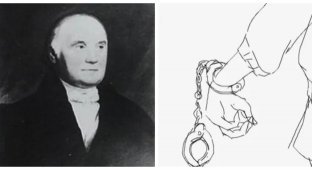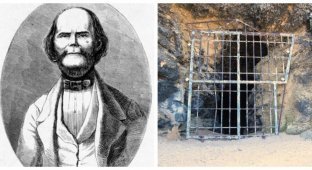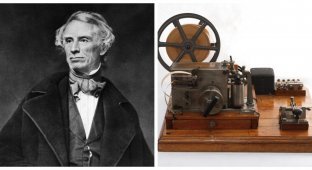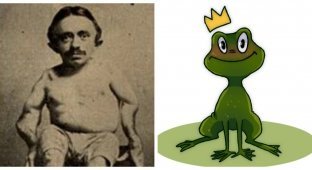Joseph Samuel - a thief who turned out to be beyond the law and death (6 photos)
Joseph Samuel was a petty thief who broke into houses and stole things. There is nothing remarkable about his crimes or his life. However, the circumstances under which they tried to execute him are quite curious and perhaps have no parallel in history. 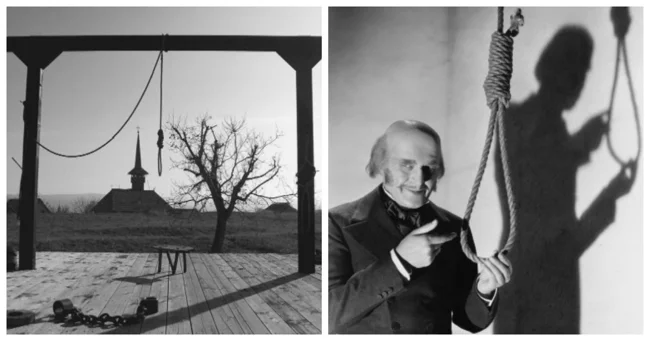
Joseph Samuel was convicted of theft at the age of fourteen in 1795. He was sentenced to seven years imprisonment, and after serving several years in England, he was transported to the penal colony of Australia. At the time, Britain operated a penal settlement at Sydney Cove in the colony of New South Wales. Early penal settlements relied on the colony's isolation to keep prisoners in. Security was lax because it was believed that any escaped convict would not survive the harsh conditions of the Australian desert. 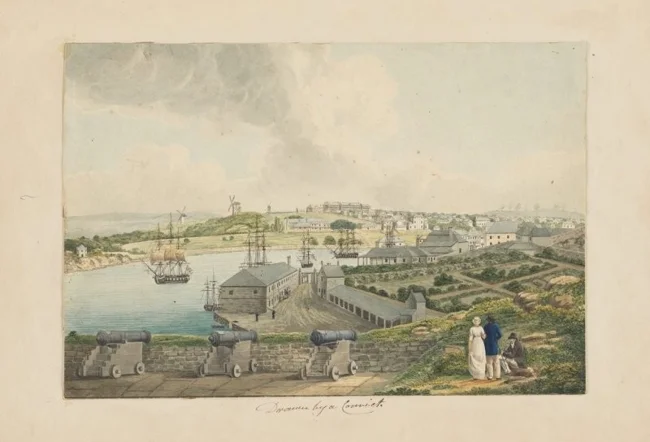
Sydney in 1788
On the night of 25–26 August 1803, Samuel and a gang of convicts secretly left the camp, entered the house of a wealthy woman, and stole 24 guineas and some other goods. The owner reported the theft to the police, and a constable named Joseph Luker, himself an ex-convict, went to investigate. The next morning his body was found by the side of the road, the handle of his own hatchet "buried in his brains." A bloody wheel lay nearby. 
The brutal murder shocked the small community. It was the first time a police officer had been killed in the line of duty in Australia. Every officer, civilian and military, was called in to help find the killers. All roads leading out of the town were blocked, and the area was filled with notorious scoundrels. After combing the area, a wheelbarrow was found missing a wheel in a house belonging to one Sarah Lawrence, where Joseph Samuel and his companions often stayed. The group was immediately taken to the magistrate and charged with murder. The gang denied the charges. Some of them even had a solid alibi. But Samuel confessed to the robbery, but denied killing the policeman. He was eventually found guilty and sentenced to death by hanging. The others were acquitted due to lack of evidence. 
Parramatta today
On 26 September 1803, Samuel and another criminal, James Hardwick, convicted of another robbery, were taken by cart to Parramatta, where hundreds of people gathered to watch the execution. A priest at the gallows asked Samuel to confess, but Samuel instead began to blame another member of the gang, Simmons, for the murder, claiming that Simmons had confessed to the crime in their cell. Simmons, who was watching the execution, protested his innocence, but the crowd, enraged to the extreme, turned on him and had to be held back by soldiers. After Samuel's accusations, Hardwick was granted a last-minute reprieve and taken down from the gallows, leaving only Samuel in the cart. 
Samuel spent his last few minutes praying. Soon the signal was given and the cart was moved away from the gallows. Around Samuel's neck was a noose of five hemp cords, which under normal circumstances could hold a weight of 1,000 pounds for up to five minutes. But as the cart moved, the rope snapped and the thief fell to the ground. Confused, the executioner quickly prepared another rope. Samuel was lifted to his feet, pulled back into the cart, and the noose they had just prepared was placed around his neck. The cart was pulled again, but this time the noose mysteriously came undone, and the criminal sank smoothly to the ground.
The crowd began to murmur, demanding that Samuel be released. The executioner almost immediately prepared another rope, ordered the cart to be driven away, put the lucky ward in it, fastened the noose around his neck, very carefully and firmly, and then ordered the cart to be driven away. The rope broke again. 
Now the crowd began to murmur and demanded that the prisoner be released. The local marshal ordered the execution postponed while he galloped off to find Governor King. When the governor heard the story, he pardoned Samuel, citing divine intervention. The ropes used in the execution were later examined and found to be free of tampering. They were also tested by hanging weights from them and found to be in good condition. Why the ropes behaved this way under Joseph's weight was never explained.
After his brush with death, Samuel was sent to King's Town to work in the mines. In 1806, he and seven others attempted to escape the settlement in a boat, but it sank and they were presumed dead. His body was never found.












